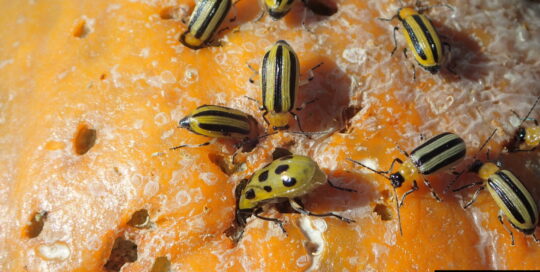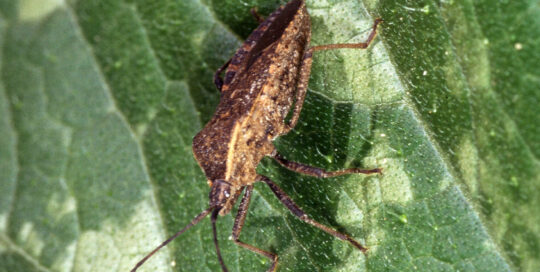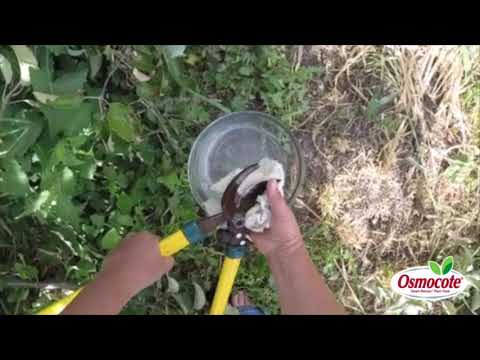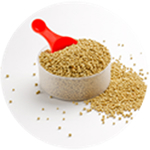Where do garden pests spend the winter?
Views: 190

Snow and cold, or at least colder, temperatures are the norm for most of the country right now, but what does that mean for the local insects? Where do garden pests spend the winter?
Overwintering As Eggs
There are a few insects that overwinter as eggs. Leafhoppers and corn rootworms are a couple that come to mind.
Corn rootworms can be very problematic, obviously, to corn. During its lifecycle the adult lays eggs in the middle of the summer, which remain protected within the soil until the spring. They then hatch and the larvae feed upon the root hairs. If you had issues last summer, consider cultivating the area where corn was planted. Theoretically, this will hopefully kill the eggs. It’s also a wise practice to move the corn into a different section of the garden.
Leafhoppers don’t cause a tremendous amount of damage to crops, even though they suck the juices from them and can be vectors of disease. The easiest way to mitigate their numbers in the winter is to clean up plant and leaf debris where they spend the cold months.
Garden Pests Chilling as Pupae
This is the stage between larvae and adulthood, which makes them harder to kill and less susceptible to environmental swings. Cabbageworms and Japanese beetles are both good examples of insects overwintering at this stage.
The cabbageworms tend to hang out on garden debris, while the Japanese beetles burrow within the soil. Growing up in Ohio, it was common to treat the lawn with Milky Spore, or a chemical pesticide, from about August to November or in the spring around April. This is when the grubs are closer to the surface, but still vulnerable.
For cabbageworms, the best bet is to clear the debris to eliminate places for them to spend the winter.
Spending the Winter as Adults
Garden pests such as squash bugs, aphids and potato beetles all spend the winter in their adult form. Squash bugs head for the garden debris. Of course, the remedy is to clean up plant materials at the end of the season.
Aphids are trickier because they hang out on host plants, such as thistle, bindweed and mustards, which may, or may not, be in your garden. They’ll even cluster in the nooks of fruit trees. Removing potential wintering grounds is a good strategy, but so is spraying fruit trees with a dormant oil spray in the late winter.
Potato beetles tend to head for the soil around where the potatoes were planted, but they’ll also stick to the edges of the garden. Tilling the area is a good way to upset their long winter’s rest and hopefully reduce the population.
Managing Pest with Fall Garden Cleanup
How Snow and Cold Affects the Garden Pests
You’d think a harsh winter in terms of heavy snow would be a detriment to the insects, but in reality, snow acts like a blanket, making it easier for them to survive. There are studies indicating that snow cover allows the soil to stay 20 to 30 degrees warmer than the air temperature. When there is more snow, there is a greater chance for a bumper crop of insects the following season. When it comes to garden pests, winter is our friend.
Meet Amy Grisak
Amy is a freelance author and photographer in Great Falls, MT who specializes in gardening, foods, and sustainable agriculture. She provides information on every kind…
Amy's Recent Posts

How to Handle the Cucumber Beetle








